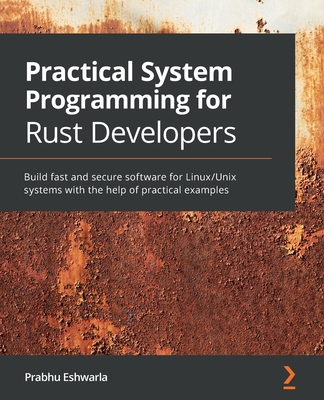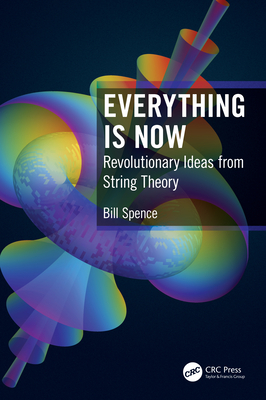The Oregon Experiment (Hardcover)
暫譯: 俄勒岡實驗 (精裝版)
Christopher Alexander
- 出版商: Oxford University
- 出版日期: 1975-12-11
- 售價: $2,500
- 貴賓價: 9.5 折 $2,375
- 語言: 英文
- 頁數: 202
- 裝訂: Hardcover
- ISBN: 0195018249
- ISBN-13: 9780195018240
-
相關分類:
Design Pattern
立即出貨(限量) (庫存=1)
買這商品的人也買了...
-
 Design Patterns: Elements of Reusable Object-Oriented Software (Hardcover)
Design Patterns: Elements of Reusable Object-Oriented Software (Hardcover)$2,480$2,356 -
 Linkers and Loaders (Paperback)
Linkers and Loaders (Paperback)$2,540$2,489 -
 UNIX Systems for Modern Architectures: Symmetric Multiprocessing and Caching for Kernel Programmers
UNIX Systems for Modern Architectures: Symmetric Multiprocessing and Caching for Kernel Programmers$2,440$2,318 -
 人月神話:軟體專案管理之道 (20 週年紀念版)(The Mythical Man-Month: Essays on Software Engineering, Anniversary Edition, 2/e)
人月神話:軟體專案管理之道 (20 週年紀念版)(The Mythical Man-Month: Essays on Software Engineering, Anniversary Edition, 2/e)$480$379 -
 程式設計師的自我修養-連結、載入、程式庫
程式設計師的自我修養-連結、載入、程式庫$580$493 -
 Debug Hacks 除錯駭客 -- 極致除錯的技巧與工具
Debug Hacks 除錯駭客 -- 極致除錯的技巧與工具$580$458 -
 Binary Hacks -- 駭客秘傳技巧一百招
Binary Hacks -- 駭客秘傳技巧一百招$580$493 -
 Linux Kernel Hacks 改善效能、提昇開發效率及節能的技巧與工具
Linux Kernel Hacks 改善效能、提昇開發效率及節能的技巧與工具$680$537 -
 The Battle for the Life and Beauty of the Earth: A Struggle Between Two World-Systems (Hardcover)
The Battle for the Life and Beauty of the Earth: A Struggle Between Two World-Systems (Hardcover)$3,540$3,469 -
 A Pattern Language: Towns, Buildings, Construction (Hardcover)
A Pattern Language: Towns, Buildings, Construction (Hardcover)$2,400$2,352 -
 The Timeless Way of Building (Hardcover)
The Timeless Way of Building (Hardcover)$2,550$2,499 -
 Peopleware:腦力密集產業的人才管理之道 (增訂版) (Peopleware: Productive Projects and Teams, 3/e)
Peopleware:腦力密集產業的人才管理之道 (增訂版) (Peopleware: Productive Projects and Teams, 3/e)$420$357 -
 The Production of Houses (Hardcover)
The Production of Houses (Hardcover)$4,320$4,234 -
 A New Theory of Urban Design (Hardcover)
A New Theory of Urban Design (Hardcover)$3,060$2,999 -
 $1,950Programming Language Pragmatics, 4/e (美國原版)
$1,950Programming Language Pragmatics, 4/e (美國原版) -
ARM 系統開發者指南 (ARM System Developer's Guide: Designing and Optimizing System Software)
$800$720 -
 Introduction to Software Testing, 2/e (Hardcover)
Introduction to Software Testing, 2/e (Hardcover)$3,390$3,322 -
 Cloud Computing : Theory and Practice, 2/e
Cloud Computing : Theory and Practice, 2/e$2,790$2,651 -
 從 Paxos 到 Zookeeper:分散式一致性原理與實例 (舊名: 撐起14億人電商的技術機密:用Paxos及ZooKeeper打造分散叢集)
從 Paxos 到 Zookeeper:分散式一致性原理與實例 (舊名: 撐起14億人電商的技術機密:用Paxos及ZooKeeper打造分散叢集)$580$493 -
 Programming Persistent Memory: A Comprehensive Guide for Developers (Paperback)
Programming Persistent Memory: A Comprehensive Guide for Developers (Paperback)$1,750,800$1,715,784 -
 Practical System programming for Rust developers: Build fast and secure software for Linux/Unix systems with the help of practical examples
Practical System programming for Rust developers: Build fast and secure software for Linux/Unix systems with the help of practical examples$1,660$1,577 -
 軟體架構原理|工程方法 (Fundamentals of Software Architecture: A Comprehensive Guide to Patterns, Characteristics, and Best Practices)
軟體架構原理|工程方法 (Fundamentals of Software Architecture: A Comprehensive Guide to Patterns, Characteristics, and Best Practices)$680$537 -
 Software Design for Flexibility: How to Avoid Programming Yourself Into a Corner (Hardcover)
Software Design for Flexibility: How to Avoid Programming Yourself Into a Corner (Hardcover)$2,050$1,948 -
 資料密集型應用系統設計 (Designing Data-Intensive Applications: The Big Ideas Behind Reliable, Scalable, and Maintainable Systems)
資料密集型應用系統設計 (Designing Data-Intensive Applications: The Big Ideas Behind Reliable, Scalable, and Maintainable Systems)$980$774 -
 $2,160Parallel and High Performance Computing (Paperback)
$2,160Parallel and High Performance Computing (Paperback)
商品描述
After a ten-year silence, Christopher Alexander and his colleagues at the Center for Environmental Structure are not publishing a major statement in the form of three works which will, in their words, "lay the basis for an entirely new approach to architecture, building, and planning, which will, we hope, replace existing ideas and practices entirely." The three books are The Timeless Way of Building, A Pattern Language, and The Oregon Experiment.
At the core of these books is the idea that people should design for themselves their own houses, streets, and communities. This idea may be radical (it implies a radical transformation fo the architectural profession) but it comes simply from the observation that most of the wonderful places of the world were not made by architects but by the people.
This book is the master plan for the University of Oregon, and is now being implemented at that university; but it shows at the same time how any community the size of a university or small town might go about designing its own future environment-with all members of the community participating personally. It is a concrete example at the Center's theories in practice, showing in simple detail, with numerous illustrations, how to implement six guiding principles: organic order, participation, piecemeal growth, patterns, diagnosis, and coordination.
商品描述(中文翻譯)
在經過十年的沉默之後,克里斯多福·亞歷山大(Christopher Alexander)及其在環境結構中心的同事們,現在正以三部作品的形式發表一項重大聲明,他們表示這將「為建築、建設和規劃提供一種全新的方法基礎,我們希望這能完全取代現有的觀念和實踐。」這三本書分別是《永恆的建築方式》(The Timeless Way of Building)、《模式語言》(A Pattern Language)和《俄勒岡實驗》(The Oregon Experiment)。
這些書籍的核心思想是,人們應該為自己設計自己的房屋、街道和社區。這一觀念可能是激進的(它暗示著建築專業的根本轉變),但它僅僅源於觀察到世界上大多數美好的地方並不是由建築師所創造,而是由人們所建造。
這本書是俄勒岡大學的總體規劃,並且目前正在該大學實施;但同時它也展示了任何一個規模如大學或小鎮的社區如何設計自己的未來環境——所有社區成員都親自參與。這是一個具體的例子,展示了中心理論的實踐,詳細說明了如何實施六個指導原則:有機秩序、參與、逐步增長、模式、診斷和協調,並附有大量插圖。








